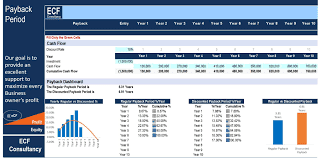Common Valuation Methods for Stocks
Investing in the stock market is an excellent way to grow your money. However, one should conduct a thorough market study before jumping out of the river. The stock market is no different from gambling, it's either you'll win or lose. Thus, you must understand the stock market's workaround, whether you're up for short-term or long-term investment. So, let us dive deeper into understanding the valuation methods for stocks.
What is Stock Valuation
Stock Valuation refers to the process of determining the value of a stock, which can be differentiated as follows:
- Market Value – refers to the company's equity capital or the number of shares outstanding multiplied by the stock price.
- Relative Value – refers to the comparative market prices of similar stocks.
- Intrinsic Value – refers to some fundamental, objective value of an asset or a stock. If the market price is lower than the intrinsic value, it may be a good buy decision. Likewise, if the market price is higher than intrinsic value, then it is a good sale decision.
Common Stock Valuation Method
Discounted Cash Flow Model (DCF)
The DCF valuation method is a method that calculates the present value of all future cash flows a company will generate. Under this approach, a stock's intrinsic value is determined by discounting the company’s free cash flow to its present value.
Dividend Discount Model (DDM)
The stock's estimated value is derived by calculating the present value of the future cash flows the stock will generate in the form of dividends. Basically, it assumes that the company's dividend represents the company's cash flow available to its shareholders. Under this method, the company's stock price's intrinsic value equals the present value of future dividends of the company. However, this model is only applicable if the company regularly distributes a dividend to its shareholder and that the distribution is stable.
Discounted Residual Income Model
The residual income valuation method looks at value from an Equity investor point of view and concentrates on the company's residual income. This approach focuses on accounting metrics rather than cash flow metrics. The expected Residual Incomes are later discounted by employing the company's cost of equity and added to the book value of the Equity.
Conclusion: Choosing an appropriate valuation method would help investor win the game
The valuation methods for stocks are crucial to every investor. There's no such thing as the perfect valuation method; each company's stock has distinct attributes. Thus, an absolute understanding of these techniques will assist investors in making the right decision.



Comments
Post a Comment